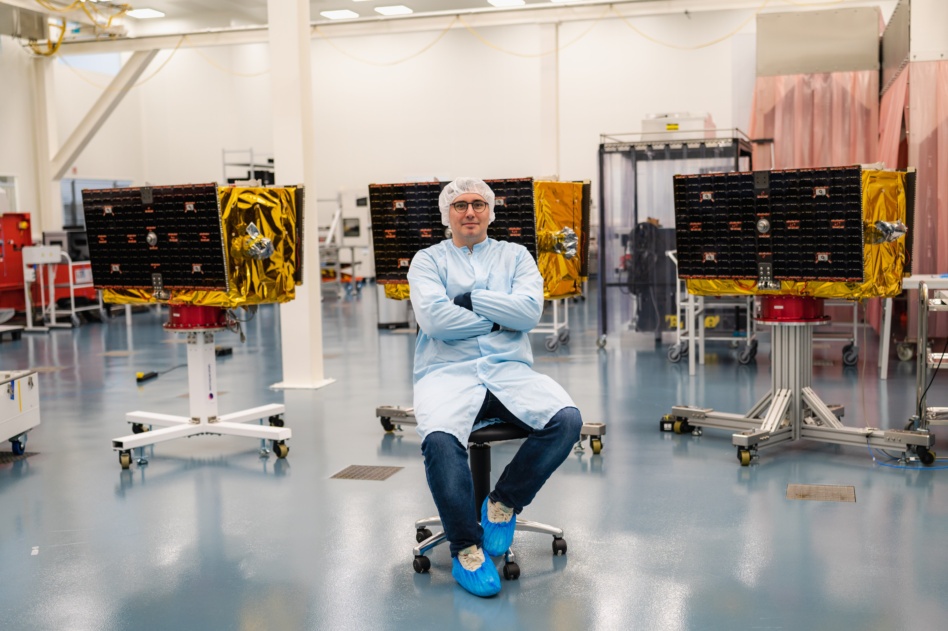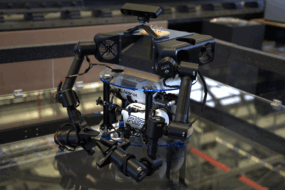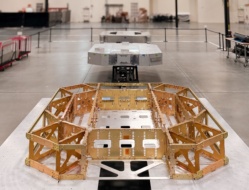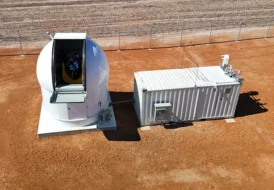The SpaceRISE consortium—made up of Eutelsat, Hispasat, and SES—announced that it had narrowed the field of potential prime contractors to build its 290-satellite IRIS2 secure satcom constellation to two companies: Airbus France, and Aerospacelab in Belgium.
SpaceRISE has the signoff of the European Commission and ESA to design, deliver, and operate the constellation, which is backed by €6.5B in public funds and over €4B in private capital. Its choice for a manufacturing partner will reveal a lot about where the European space industry is headed, and answer the question on everyone’s mind: Does the consortium bet on the Belgian upstart, or play it safe with the decades-old A&D prime?
Payload sat down with Benoît Deper, Aerospacelab’s founder and CEO, to discuss the startup’s pitch to manufacture the constellation. Airbus declined to comment.
Bidding war: Deper told Payload that in his view, if the consortium were simply considering the economics of the two bids, Aerospacelab would be a no-brainer.
“Our bid is likely to be very significantly cheaper than the Airbus one,” Deper said. “The main question now, I guess: Is this discount going to offset the perceived higher risk going with us, than going with the biggest prime?”
For all of Europe’s positioning about building a diverse space ecosystem, filled with rapid growth startups, many of ESA and the European Commission’s largest contracts for flagship constellations have gone to the A&D primes.
- In 2021, €1.47B in ESA contracts to build the second generation of the Galileo PNT constellation were given to Airbus Defence and Space, and Thales Alenia Space.
- In 2020, €2.55B in ESA contracts to build out six satellites as part of the Copernicus constellation were given to Airbus Defence and Space (Germany and Spain), Thales Alenia Space Italy, and OHB.
While those contracts no doubt trickled down into the rest of the European space industry, with subcontractors picking up some of the work, Deper pointed out that the cost and schedule overruns for these flagship projects could tip the scales in Aerospacelab’s favor.
“I would guess that the commission is on the edge trying to carefully monitor prime contractors and the supply chain, to make sure that it doesn’t go as bad as Galileo. Because Galileo was quite late,” Deper said. “It has been shown that going faster, in the end, is cheaper.”
Sizing up the competition: While Aerospacelab, founded in 2018, is decades younger than Airbus, the Belgian company’s size shouldn’t represent much of a barrier to completing the IRIS2 contract, Deper said.
Aerospacelab closed a €94M Series B this week to scale up its Megafactory manufacturing facility in Belgium. The factory is scheduled to come online next year, and to produce 500 sats annually by 2027.
Deper argued Airbus’ size could work against its ability to hit the timeline of getting IRIS2 ready by 2030.
Projects the size of IRIS2 often come with extra work involved once production gets underway, Deper said. He argued the ability to move quickly and to redo aspects of the design, manufacturing, and procurement process can be a huge differentiating factor.
“Airbus has some of the brightest engineers, and they are financially very robust, but it’s its own worst enemy in terms of inertia,” Deper said. “We can be super-responsive [and] we have no inertia, given our size compared to others. But on top of that, should the suppliers not be able to meet the new timeline, being vertically integrated helps.”
Damned if you do: Ultimately, being a semi-finalist for the IRIS2 contract gives Deper mixed feelings.
Losing the massive contract wouldn’t risk the survival of the underlying business,, Deper said. Aerospacelab would still be a prime contender for future institutional and commercial contracts for smaller—sub 20-bird—constellations.
On the other hand, getting a contract the size of IRIS2 could have an irreversible impact on the company’s core culture.
“Actually, I’m more afraid of the scenario where we win,” Deper said. “We share this common fear of getting too much business with institutional players, and becoming what we swore to not become.”




